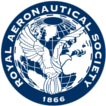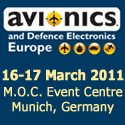Added on 18 March 2011 by victoria white
Targeting & Delivering Effect for Future Force 2020
The Strategic Defence and Security Review (SDSR), Securing Britain in an Age of Uncertainty, outlines the needs of the UK’s future force structure. This structure, Future Force 2020, will be a highly capable force ready to react, at various levels of intensity, to the complex threat scenarios that may develop in future. It will be a flexible and expeditionary force based on fewer platforms that must be able to deliver effectors with a high degree of accuracy and in a timely manner by air, land or sea.
The threats Future Force 2020 is likely to meet will be challenging. For instance, the threat can use camouflage, concealment and deception measures, presenting targets that could be fleeting in nature. In addition, those threats may evolve more rapidly than our existing development cycles. Moreover, it is anticipated that allied operations will be constrained by rules of engagement where collateral damage is unacceptable politically or legally.
For this transition to become a reality, the challenges of affordability must be met to provide these capability needs. Can we develop or adapt systems, technologies and operations to achieve this?
In order to address these issues, a classified conference is being organised by the Royal Aeronautical Society’s Weapon Systems and Technology Specialist Group. This conference will focus on future operational needs, force structure or system concepts, targeting and weapon effects aligned to Future Force 2020.
Tags: 2020, farnborough, future effectors, future force, qinetiq, royal aeronautical society, SDSR, technology, weapons systems
Added on 08 March 2011 by Emma Bossom
From Pioneers to Presidents: Celebrating a Century of Women in Flight
Following the success of last year’s RAeS Women in Aerospace & Aviation Conference, the 2011 Networking Event will celebrate a century of women’s acheivements in flight.
Tags: Aerospace, aviation, event, first female pilot, pilot, royal aeronautical society, seminar, spitfire, women, women ferry pilot, women in aerospace, women in aviation, world war two
Added on 08 March 2011 by Emma Bossom
The Wonderful Women Ferry Pilots of the Air Transport Auxiliary
The Royal Aeronautical Society is offering a unique opportunity to meet the few surviving women pilots who ferried every type of military aircraft during World War II, including fighters, huge four-engine bombers as the sole pilot and even the first British jet-engine aeroplane. By the end of the war, ATA pilots had each flown dozens of different aircraft, sometimes several in one day, often never having seen the aeroplane before, far less flown it.
During the seminar, you will hear why the ATA was such a unique organisation, how the women ferry pilots were trained and what they achieved, what an RAF bomber pilot thought of the young women who delivered aircraft to his base, and finally hear from the so-called ‘Spitfire Women’ themselves about their memories of these extraordinary times and their experiences.
At the end of this special seminar, the Royal Aeronautical Society will be making a presentation to the ATA women pilots present to honour their extraordinary achievements.
Tags: Aerospace, aviation, event, first female pilot, pilot, royal aeronautical society, seminar, spitfire, women, women ferry pilot, women in aerospace, women in aviation, world war two
Added on 01 March 2011 by Emma Bossom
For more than half a century now, the International Council of the Aeronautical Sciences (ICAS) has provided for the world’s aerospace engineers, scientists, technologists and managers, the preeminent forum to present and discuss the latest developments in aeronautics. This remarkable apolitical organization founded by Theodore von Karman and his international colleagues, continues to build on its impressive heritage, to be even more relevant to the global aerospace and aviation industries. This world congress staged biennially by ICAS is the key opportunity for those committed to serving those industries to meet, present, discuss and create opportunities that can only be done in such an international environment.
Tags: Aerospace, Australia, Brisbane, Call for Papers, conferences, Engineers Australia, event, ICAS, RAeS Australia Division
Added on 21 February 2011 by gemma crabb
Autumn 2011 Flight Simulation Conference
CALL FOR PAPERS - The Contribution of Flight Simulation to Aviation Safety
Flight Simulation’s broad role in developing, maintaining and enhancing flight safety is well recognised, but have advances in simulation technology and capability been matched by corresponding improvements in the way we conduct training?
Today’s environment is one of increased cockpit automation, airspace congestion, ultra long haul operations, enhanced flight envelope protection and arguably reduced levels of actual manual flying experience in the new generation of flight crews. The levelling off of hitherto falling accident rates, and the changing balance of the causal factors behind them, illustrated by a number of recent highly publicised accidents and incidents, suggest that there are areas for improvement, and that we must continue to strive to further improve our safety record.
The Royal Aeronautical Society Flight Simulation Group has recognised this, and for the past 5 years has overseen several international, multi-disciplinary study groups. The latest one of these is the International Committee for Aviation Training in Extended Envelopes (ICATEE). Its objective is to look at all aspects of live and synthetic training for anticipating, recognising, avoiding, and recovering from unusual attitudes and flight situations, aircraft upset, and loss of control in flight. ICATEE will bring together the best practice in current education, flight instruction and training, updated by the latest research and a rigorous methodology.
Additionally, the IATA International Training and Qualification Initiative (ITQI) promises improvements in flight crew knowledge, skills and attitudes and hence safety through evidence-based competency training regimes. These have far reaching implications on the way flight crew training is conducted, from ab-initio through to type rating and recurrent training, including instructional methods and standards.
While both ICATEE and ITQI are framed around civil large aircraft training and safety requirements, they have the potential to influence military training regimes, which increasingly rely on simulation to maintain standards and mission readiness. At the other end of the spectrum, low cost FSTDs, and new digital interactive media integrated into educational and training simulations, are increasingly being used to address the comparatively poor safety record of General Aviation (GA), both fixed- and rotary-wing. In other aspects of simulator-based training, advances in technology and functionality offer other benefits which can be harnessed to address more specific safety issues.
The conference will principally examine how all these initiatives link together through the use of flight simulation. A significant part of the Conference will be dedicated to the detailed reporting of both the Technical and Training sub-groups of the ICATEE. The sessions will address the approach taken to analyse the training requirements and to develop the rationale for a suitable range of live and simulator-based education, training, and instructional courseware. The Technical subgroup will present its recommendations for data collection and validation in support of enhanced simulator modelling and cueing systems. Papers are also being invited from the IATA ITQI team.
This Royal Aeronautical Society Flight Simulation Conference also invites papers on other safety related issues, in addition to IATA ITQI and ICATEE, such as:
- Simulator technological improvements to meet the safety-driven training and instructional challenges
- Low cost simulation and its potential contribution to safety
- What does GA – fixed wing and helicopters - need from simulation?
- How can flight simulation make a significant reduction in rotary wing accident rates?
- Instructor Qualification and Accreditation
- Human Factors and the Psychological Aspects of Simulator-based training.
- The Live/Synthetic Balance
- Leveraging the next generation in the gaming industry to enhance mission rehearsal training
- New Electronic and Distributed Media, such as games, Social Networks, and the iPad, and their implications for Training and Safety
The dealine for received abstracts is Thursday 21st Apri 2011.
Kindly sponsored by:
Kindly supported by:
Do you know somebody that this event would appeal to? Share it on your favourite services below
Tags: Aviation Safety, civil arena, conferences, Flight Operations, Flight Simulation, group conferences, IATA, ICATEE, ITQI, raes, royal aeronautical society, safety analyses, simulation group
Added on 15 February 2011 by Emma Bossom
An International Approach to Flight Crew Training Standards
The Annual RAeS International Flight Crew Training Conference is well established and highly successful. The 2011 Conference aims to seek solutions on how best to consider flight crew training standards from an international perspective.
Tags: airspace management, Andrew Haines, best practice, CAA, EASA, FAA, fixed wing, Global Professional Certificate, Human Factors, IATA, ICAO, ICATEE, international flight crew training, ITQI, Jules Kneepkins, rotary wing, training, training standards, training standards harmonisation
Added on 07 February 2011 by gemma crabb
Development of the Zephyr HALE UAV – holder of the Absolute World Record for Duration
The Stratosphere offers a new domain to provide services across whole countries and across the world, without the intermittent coverage or high infrastructure or operational/launch costs of other systems. However, we have only briefly occupied the Stratosphere –until now.
The QinetiQ Zephyr is the first to demonstrate that Solar aircraft are capable of “eternal” flight in the stratosphere with real payloads, and is the world’s longest flying aeroplane without refuelling- a 14 day first flight at altitudes up to more than 70,000ft in July 2010.
The lecture will describe how the Zephyr programme has progressed towards a truly high altitude, longer duration, operationally capable platform combining all-new, efficient technology- and how Zephyr has successfully introduced the new technology in a comprehensive ground and flight test programme.
Eternal solar platforms offer many potential applications –those currently carried out by satellites and aircraft (such as communications, earth observation, atmospheric sampling) – better and cheaper, and new applications which are not currently possible or affordable by other means.
About the speaker
Chris Kelleher is the QinetiQ Technical Director for High Altitude, Long Endurance (HALE) systems and Flight operations Manager of Zephyr, the world’s first “eternal” aircraft. He has 30 years experience of aircraft and spacecraft design and operation at QinetiQ Farnborough. He is married with 4 children, and flies light aircraft as a hobby and occasional air displays, being a three times former winner of the British Aerobatics Association Advanced Level.
Refreshments will be served from 17.30hrs and the lecture will commence at 18.00hrs.
Please RSVP to the Conference & Events Department at [email protected]
Tags: Chris Kelleher, Flight Test Group, HALE, High Altitude, qinetiq, Solar Powered, UAV, zephyr
Added on 13 January 2011 by Emma Bossom

The French Air & Space Academy will be visiting the UK and will host an informative evening of aerospace lectures. The evening will commence with a presentation of the Air & Space Academy hosted by Gerard Brachet and will be followed by three short presentations by aerospace experts.
Tags: AAAF, AAE, academie de l'air et de l'espace, academy of air and space, ACARE, Aerospace, air, Alain Garcia, David Marshal, france, Iain Gray, lecture, raes, research, royal aeronautical society, Space, technology, Technology Strategy Board
Added on 12 January 2011 by Royal Aeronautical Society

Taking place on the 13th & 14th April 2011 at the Society’s Headquarters, Aerospace 2011: Funding the Future will focus on Aerospace & Aviation in an Age of Austerity and address how both the civil and defence communities can look to overcome economic uncertainties and grow business in the coming years.
Tags: aerospace 2011, air power, aviation, aviation in an age of austerity, civil, conference, conferences, decision-maker, Defence, defence budget, defence budgets, defence procurement, Flight Simulation Group, funding the future, government, Management Studies, RAeS annual conference, royal aeronautical society, SDSR, society events, technology, Weapons Systems & Technologies
Added on 12 November 2010 by Sam Phillips
AEROSPACE FOR EUROPE – MORE THAN JUST FLYING
High Value, Low Carbon, Europes Future
The most important multistakeholder high level roundtable congress in Brussels in December 2010.
This is the aerospace event of the year where decision maker of the most leading European industry, politics and research meet.
Change! Innovation! Vision 2050!
Tags: Aerospace, aviation, Brusells, conferences, Europe, event
Added on 01 November 2010 by Royal Aeronautical Society
Spring 2011 Flight Simulation Conference
The World Outside The Aircraft - Simulating The Operational Environment
Much progress has been made and discussed in previous RAeS Flight Simulation Group Conferences on the simulation of an aircraft and its operational systems for use in flight crew training. International standards have even been drafted in the civil arena defining required levels of simulation fidelity as a function of training tasks.
Tags: air traffic control, awareness skills, civil arena, computer generated forces, conference spring, conferences, Flight Simulation, group conferences, military perspective, royal aeronautical society, safety analyses, sensor simulation, simulation group, substantial focus, threat and error management, traffic, visual aids, visual scenes, Weather






